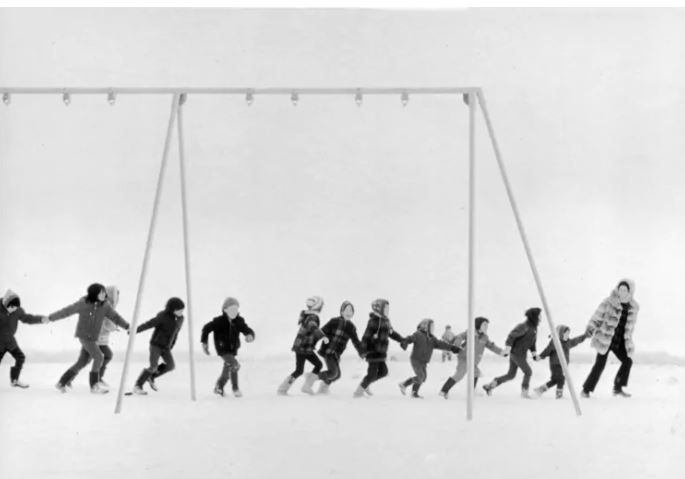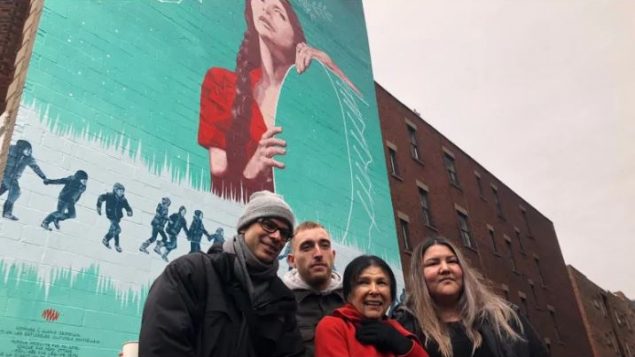Alanis Obomsawin, the Abenaki filmmaker from Odanak, Quebec, is honoured with the latest in a series of murals in Montreal, created to honour important contributors to Montreal’s cultural scene.
Obomsawin began as a consultant at the National Film Board in 1967. She’s now working on her 51st documentary in a career that’s been honoured and awarded many times over the years.
Obomsawin lives in the neighbourhood where the mural was unveiled on Monday, November 5, 2018.

Alanis Obomsawin honoured in the Montreal neighbourhood she’s lived in for over 50 years. (Jessica Deer/CBC)
“I don’t think I have the words to say what I feel,” Obomsawin told CBC News at the unveiling.
“It’s so extraordinary, and for me to have the children with me there is the most important [thing].”
The mural was designed by Aitkamekw artist Meky Ottawa, from Manawan, Quebec.
“It’s a good way for us to be seen”
She works in several media, including illustration, video, and installation, to highlight the issues affecting Indigenous Peoples.
Ottawa worked with MU, a charitable non-profit mural arts group, run by Rafael Sottolichio.
“I think it’s important for me to to share my work like this, for everybody to see. It’s a good way for us to be seen,” said Ottawa.

Alanis Obomsawin plays with First Nations school children in Moose Factory, Ont.ario, in one of the photographs that inspired the mural. (Alanis Obomsawin)
This was Meky Ottawa’s first mural and in it she combined elements from Obomsawin performing at the 1970 Mariposa Folk Festival in Toronto, with a 1968 photo taken during the filming of Christmas at Moose Factory, Obomsawin’s directorial debut, released in 1971.
Obomsawin shared some of her memories of Moose Factory.
“It was a residential school,” she told CBC.
“I would go during the day [and] just tell stories in the classroom and at recreation time I would come out and run around with the kids. All those children now are all grandparents. So I hope that they get to come and see it.”
Residential schools operated for over 100 years across Canada by various Christian religious groups.
They were all closed in the 1990’s, after approximately 150,000 Indian, Inuit, and Métis children between the ages of 4 and 16 had been forced to attend them.
Usually separated long distances from their home and families, the truth of what many of these Indigenous children suffered during their stays, is what Canadians are now aware of as the national reconciliation process, that began with the Truth & Reconciliation Commission, continues.
(With files from CBC)







For reasons beyond our control, and for an undetermined period of time, our comment section is now closed. However, our social networks remain open to your contributions.